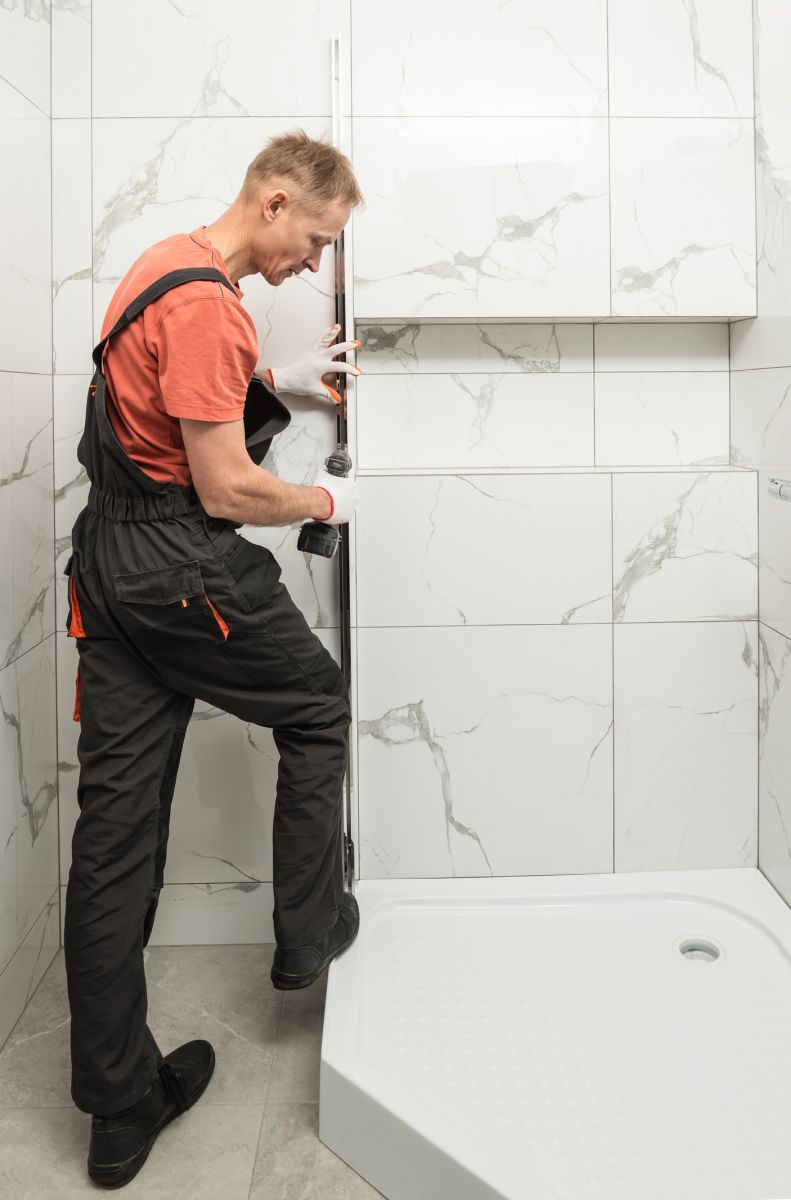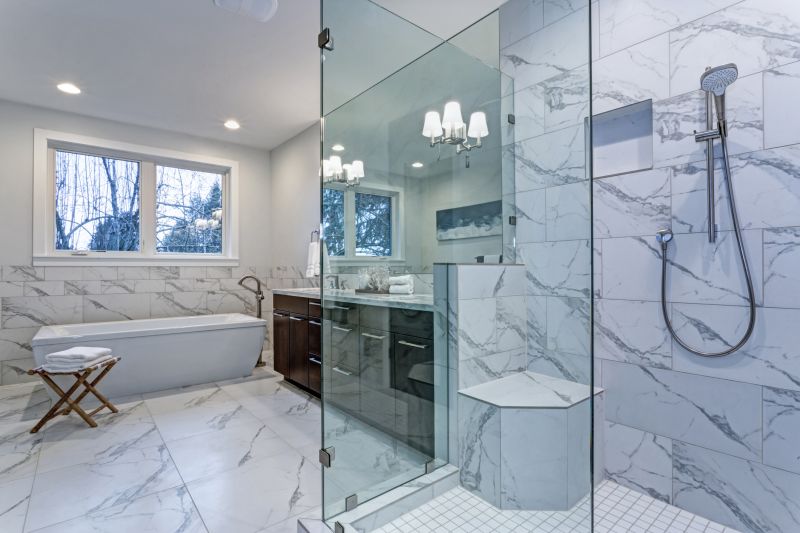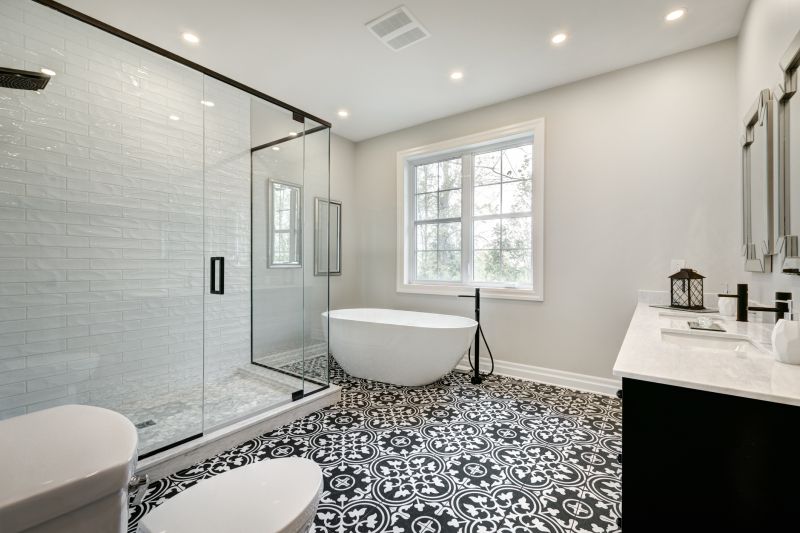Shower Base Compatibility
Welcome to Aberdeen Showers
Shop for Shower Base Compatibility

When planning a bathroom renovation, selecting the right shower base is a crucial decision. Shower bases, also known as shower pans, come in various materials and designs, each with unique attributes. Homeowners in Aberdeen, North Carolina, must consider factors like durability, cost, and installation ease when choosing a compatible shower base for their space.
One common option is acrylic shower bases. These are lightweight and relatively easy to install, making them a popular choice for many homeowners. Acrylic bases are available in a range of sizes and shapes, allowing for flexibility in design. However, they may be prone to scratches and can discolor over time if not properly maintained.
Fiberglass shower bases offer another alternative. Known for being cost-effective, fiberglass bases are also lightweight and easy to install. They provide a smooth, glossy finish but can be less durable than other materials. Fiberglass is susceptible to cracking and may require more frequent replacements, especially in high-traffic bathrooms.
Ceramic tile shower bases present a more traditional option. With their classic look, they can enhance the aesthetic of any bathroom. Ceramic tiles are durable and resistant to stains, but they require more intensive installation processes. Additionally, the grout lines may necessitate regular cleaning to prevent mold and mildew buildup.
For those seeking a more luxurious feel, stone resin shower bases are an option. These bases are made from a combination of stone and resin, offering a solid and durable surface. They are available in various finishes, providing a high-end look. However, they tend to be heavier and more expensive than other options, which can impact installation requirements and budget.
The choice of shower base also depends on the existing bathroom structure and plumbing. It's essential to ensure the base fits the designated space and is compatible with the drainage system. Consideration of these factors can prevent costly adjustments and ensure a smooth renovation process.
Here is a quick comparison of the options:
| Option | Pros | Cons |
|---|---|---|
| Acrylic | Lightweight, versatile designs | Scratch-prone, potential discoloration |
| Fiberglass | Cost-effective, easy installation | Less durable, prone to cracking |
| Ceramic Tile | Durable, aesthetic appeal | Complex installation, grout maintenance |
| Stone Resin | High-end look, solid surface | Heavy, higher cost |
Where it fits:
- Acrylic: Ideal for quick renovations and budget-conscious projects.
- Fiberglass: Suitable for guest bathrooms with moderate use.
- Ceramic Tile: Perfect for traditional designs with a focus on aesthetics.
- Stone Resin: Best for luxury homes seeking a premium finish.
Ultimately, selecting the right shower base involves balancing personal preferences with practical considerations. By understanding the differences between materials and their compatibility with existing bathroom infrastructure, homeowners in Aberdeen can make informed decisions that align with their renovation goals.
Comparing Shower Base Materials: Acrylic vs. Fiberglass vs. Tile
Shop for Comparing Shower Base : Acrylic vs. Fiberglass vs. Tile
A Detailed Look at Material Choices for Shower Bases
When selecting a shower base for a home in Aberdeen, North Carolina, homeowners often consider the material's durability, aesthetics, and cost. Three popular choices are acrylic, fiberglass, and tile, each offering unique advantages and drawbacks. Understanding these differences can help make an informed decision that aligns with specific needs and preferences.
Acrylic shower bases are known for their smooth surface and ease of maintenance. They are lightweight and resistant to chipping and cracking, making them a practical choice for many households. Acrylic is also available in various colors and styles, providing flexibility in design. However, acrylic may be more susceptible to scratches over time, and its color can fade with prolonged exposure to sunlight.

Fiberglass shower bases are another common option, appreciated for their affordability and ease of installation. Like acrylic, fiberglass is lightweight and comes in a range of styles. It is also relatively easy to repair if damaged. On the downside, fiberglass can be prone to staining and may not have the same level of durability as other materials, potentially leading to a shorter lifespan.
Tile shower bases offer a custom look that can enhance the aesthetic appeal of a bathroom. They allow for a wide variety of design options, from different tile sizes and colors to unique patterns. Tile is durable and can add value to a home. However, it requires more maintenance than acrylic or fiberglass, as grout lines need regular cleaning to prevent mold and mildew. Installation can also be more complex and time-consuming.
When choosing between these materials, it is essential to consider factors such as budget, design preferences, and maintenance willingness. Homeowners looking for a low-maintenance and cost-effective solution might lean towards acrylic or fiberglass, while those prioritizing aesthetics and customization might prefer tile despite its higher maintenance demands.
| Option | Pros | Cons |
|---|---|---|
| Acrylic | Smooth surface, easy maintenance, lightweight | Susceptible to scratches, color fading |
| Fiberglass | Affordable, easy installation, repairable | Prone to staining, less durable |
| Tile | Customizable, durable, adds value | High maintenance, complex installation |
- Acrylic: Ideal for those seeking low maintenance
- Fiberglass: Suitable for budget-conscious homeowners
- Tile: Fits well in custom-designed bathrooms
Ultimately, the choice of shower base material depends on personal preferences and the specific conditions of the bathroom space. By weighing the pros and cons of each option, homeowners in Aberdeen, North Carolina, can select a shower base that meets both functional and aesthetic requirements.
Installation Approaches for Shower Bases: Prefabricated vs. Custom-Built
Shop for Installation Approaches for Shower Bases: Prefabricated vs. Custom-Built
Weighing the Benefits and Drawbacks of Different Installation Methods
When it comes to selecting a shower base for your bathroom, homeowners in Aberdeen, North Carolina, often face the decision between prefabricated and custom-built options. Each approach offers distinct advantages and potential drawbacks, making it important to consider factors such as budget, design preferences, and bathroom layout. Understanding these differences can help ensure a compatible and satisfactory choice for your home.
Prefabricated shower bases are a popular choice due to their ease of installation and cost-effectiveness. These units are manufactured in standard sizes and shapes, making them a practical option for many homeowners. They are typically made from materials like acrylic or fiberglass, which are lightweight and durable. Prefabricated bases are readily available in home improvement stores, allowing for quick purchase and installation.

On the other hand, custom-built shower bases offer a higher degree of personalization, catering to unique bathroom layouts and specific design preferences. These bases are constructed on-site, allowing homeowners to choose from a variety of materials such as tile, stone, or concrete. While custom-built bases can be more expensive and time-consuming to install, they provide the flexibility to create a truly personalized shower experience.
One of the main advantages of prefabricated shower bases is their simplicity. They come in a variety of designs and sizes, making it easy to find a model that fits your bathroom without extensive modifications. However, they may lack the unique aesthetic appeal and customization options that some homeowners desire. In contrast, custom-built bases can be tailored to fit any space and style, but often require a larger investment in terms of time and money.
Installation approaches also differ significantly between these two options. Prefabricated bases typically have a straightforward installation process, often requiring only basic plumbing adjustments. Custom-built bases, however, may involve more complex construction, including waterproofing and tiling, which can extend the project timeline.
For homeowners in Aberdeen considering a new shower base, it's crucial to weigh the pros and cons of each option. Prefabricated bases might be ideal for those seeking a quick and cost-effective solution, while custom-built bases could appeal to those with specific design aspirations and a flexible budget.
| Option | Pros | Cons |
|---|---|---|
| Prefabricated | Easy installation, cost-effective, readily available | Limited customization, standard sizes |
| Custom-Built | Highly customizable, unique design options | Higher cost, longer installation time |
- Prefabricated: Suitable for standard bathroom layouts and budget-conscious projects.
- Custom-Built: Ideal for unique spaces and personalized design preferences.



